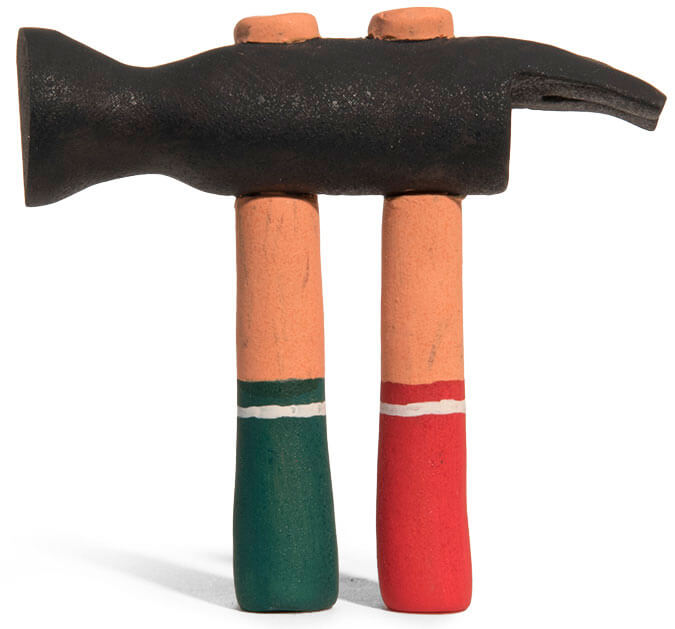
The golden moment for a reporter on assignment comes in the evening. You stumble into a room at some two-star hotel, throw notebooks and gadgets onto the bed, plug in your computer, splash water on your face, get to work. You have a story, and all night to tell it. No kids. No clutter. Just sweet solitude.
Alas, out here in Mountain View, California, where I’ve been reporting June’s Walrus cover story on digital privacy, solitude is unaffordable. Holiday Inn: $466 (US) per night. Quality Inn: $354. Hampton Inn & Suites: $400. For years, friends have urged me to sign up for Airbnb. Cheapness is the mother of invention. This is the day I finally give “home sharing” a try.
Airbnb—as most readers already know—is Uber done up in bricks and mortar. Owners rent out bedrooms, basements, apartments, or whole houses at whatever price they set. In central Mountain View tonight, the cheapest unit on offer at short notice is a decent-looking guest room for $113 (CAD). Just thirty minutes after contacting the owner, I’m knocking at her brightly painted house five minutes’ walk from Mountain View’s main drag.
When the door opens, I am greeted by a fifty-something woman with soft manners and grey hair done up in a casual style. “You must be Jonathan—the Canadian writer,” she says warmly. “I’m Carol.”
I cast my gaze across the bungalow: a young teenager doing homework at a coffee table, books and papers organized in giant stacks, and two dogs—one happily chewing up a pair of adult Crocs. Through the sliding doors, I see a set of large elevated boxes buzzing with insects. Carol is also a beekeeper.
The host leads me down a hallway to my room, introducing me to her two other Airbnb guests: a young Swedish woman doing post-doc work at Stanford, and her marine-biologist husband. “We all share this one bathroom,” Carol says cheerily, gesturing to a door on the left, “So make sure to knock!”
My bedroom, as it turns out, also functions as a library—which I waste no time in examining. Alongside shelves of classic novels, there are a telling number of volumes about breast cancer, “alternative” medical therapies, and “integrative oncology.” There’s a guide to Gaian cooking alongside a book called Tissue Cleansing through Bowel Management .
It’s all too intimate—a world away from the private, soulless ambience of a commercial hotel room. But there’s no going back. Airbnb already has my money. And in any event, the bed turns out to be perfectly comfortable. I fall asleep reading about Gaia and the miraculous workings of the human digestive system.
In the morning, after packing up, I thank Carol for her hospitality and return my house key. But she’s in no hurry to see me go. “What sort of things do you write about?” she asks, as she hands me a cup of tea.
“Oh, technology, business, that sort of thing,” I respond. “Lately, I’ve been doing a lot of stuff on the sharing economy . . .”
And just like that, it becomes an interview.
Carol Reade grew up in Saudi Arabia, the daughter of American oil engineers. Capitalism was in her blood from an early age. “I started my first business when I was eight—making and selling lollipops,” she tells me. “They didn’t see candy like this in Saudi stores. So I did really well.”
As an adult, Carol started more business ventures than she can count—including an errand-running service called It’s About Time that was once profiled in Britain’s Guardian. Despite her home’s crunchy-granola atmosphere, she has no time for leftists who assail the sharing economy as a threat to workers: “People come to this part of California from all over the world. There’s a place in the market for everyone.”
And then Carol goes further—challenging the premise that the sharing economy is a mere outgrowth of laissez-faire capitalism. She tells me that the habit of inviting people into her home actually began with her son’s Waldorf schooling. When visiting Waldorf teachers arrived from overseas, Carol offered them a place to stay.
“I call it ‘collaborative consumption,’” she says. “Why does everyone on this block need their own lawnmower? Why does everyone need their own ladder? If I have space, I share.”
The sharing economy as hippie capitalism? In my journalist brain, always alive for the next big idea, the command console starts to come alive.
“I’ve been doing Airbnb for five years,” Carol says. “For guests, it’s not always about price. A lot of them—what they want is a sense of community. Look at you and me, sharing this conversation—this personal connection. Would this be happening at a hotel?”
“No,” I say, slightly ashamed by the squeamish attitude I’d brought into this house the day before.
Carol gets up, signalling to me that she has to start her day. I close my notebook, cap my pen, and extend my right hand for my usual business-like goodbye.
“Actually, I’m more of hugger,” Carol says, extending her arms outward and giving me a lovely smile. “What about you?”
“How odd,” I think to myself, as I move in for the embrace. “I really didn’t think I was.”
This appeared in the June 2016 issue.






